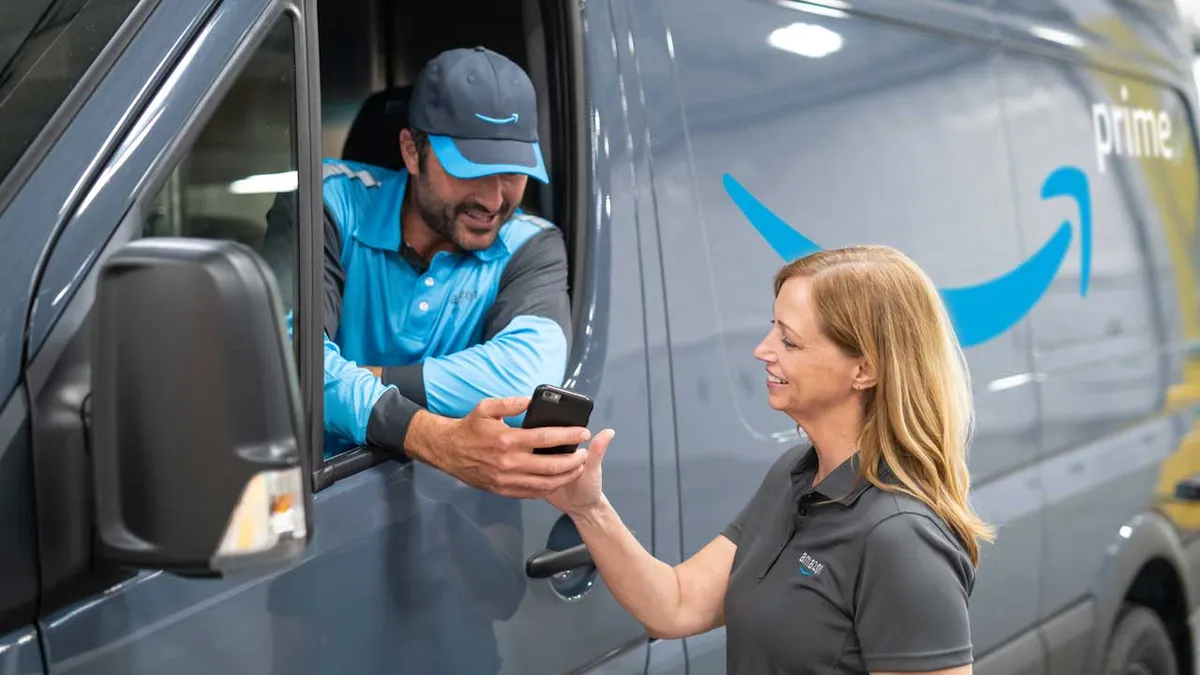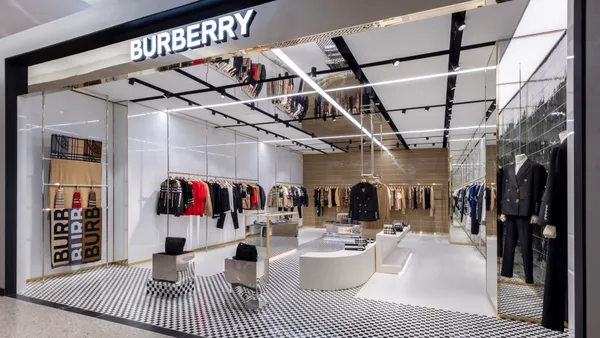Dive Brief:
- Amazon is reportedly using fabric tents to expand its logistics operations in at least eight states, including Tennessee, South Carolina, Arkansas, Georgia, Colorado, Louisiana, Kentucky and Idaho, according to Business Insider.
- The locations, called delivery stations, are used to house and sort packages before they're delivered to their final location, Business Insider reported.
- An Amazon spokesperson told Business Insider the structures are temporary as the company builds more permanent warehouses.
Dive Insight:
This report is the latest sign of Amazon's ambitious goals to expand its logistics network for delivering the packages ordered on its online marketplace.
Earlier this month, reports indicated Amazon was inviting companies to join Amazon Shipping, a service for fulfilling orders that allows shippers to print labels and have Amazon carriers pick up packages from their warehouse.
Perhaps the most telling sign of Amazon's ambitions is the company's annual filing with the Securities and Exchange Commission (SEC), which for the first time listed as its competitors "companies that provide fulfillment and logistics services for themselves or for third parties, whether online or offline."
In 2017, Amazon shipped more than 5 billion items — and that's just items shipped with Prime, the company said last year. The cost associated with this grows by billions of dollars every year.
| Year | Amazon's Shipping Cost |
|---|---|
| 2016 | $16.2 billion |
| 2017 | $21.7 billion |
| 2018 | $27.7 billion |
SOURCE: Amazon SEC Filing
"We expect our cost of shipping to continue to increase to the extent our customers accept and use our shipping offers at an increasing rate, we reduce shipping rates, we use more expensive shipping methods, and we offer additional services," Amazon said in its SEC filing. "We seek to mitigate costs of shipping over time in part through achieving higher sales volumes, optimizing our fulfillment network, negotiating better terms with our suppliers, and achieving better-operating efficiencies."
Failing to optimize its fulfillment network could result in "harm" to Amazon's business, it claimed in its most recent 10-K. And negotiating with logistics providers like UPS and FedEx, despite listing these types of companies as competitors, is part of that effort.
"We rely on a limited number of shipping companies to deliver inventory to us and completed orders to our customers," Amazon said in the filing. "If we are not able to negotiate acceptable terms with these companies or they experience performance problems or other difficulties, it could negatively impact our operating results and customer experience."















